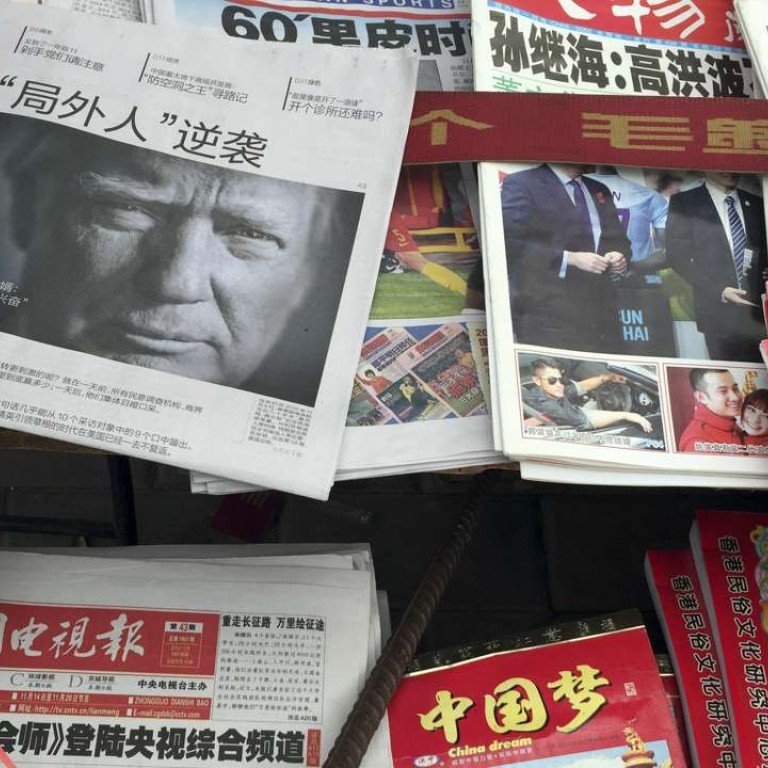
US anti-propaganda law ‘may set stage for war of ideas with China’
Washington’s new anti-propaganda legislation could be aimed at China in Trump era, analysts say
China and the United States could head down the slippery slope towards ideological confrontation after US President Barack Obama quietly signed an “anti-propaganda bill” into law, mainland observers said.
China is mentioned just once in the 1,623-word Countering Disinformation and Propaganda Act, but observers said it could become a tool to counter Beijing.
The legislation was signed as part of the National Defence Authorisation Act of 2017 shortly before Christmas.
The anti-propaganda act is backed by an annual budget of US$800 million to, among other things, establish a fund to train journalists, and to give contracts and grants to non-governmental organisations, civil society organisations, think tanks and private firms specialising in deciphering trends in disinformation campaigns by other countries.
In a panel discussion hosted by the Atlantic Council, a Washington-based think tank, in mid-March, one of the legislation’s architects, Republican Senator Rob Portman, said the act was not meant to target a specific country but the propaganda itself.
“To be clear, our legislation is not designed to permanently single out any one nation or nations for special attention, [but aims to create] a more comprehensive, proactive approach to winning the war of ideas,” Portman said.
But Portman did spell out what he and co-drafter Senator Chris Murphy, a Democrat, saw as threats from China.
“China spends billions annually on its foreign propaganda efforts,” Portman said. “China’s land reclamation in the South China Sea is a recent example of how effective disinformation operations can be used to seize initiative, and in this case catch the US and its allies off guard.”
Beijing Institute of Technology economics professor Hu Xingdou said tension between China and the US could escalate with the passage of the bill.
“We always have ideological differences but with Donald Trump being the next [US] president and his hostile views towards Beijing, he may actually make China America’s biggest enemy,” Hu said.
“China and the US are the world’s two biggest economies, and China’s military power is growing very fast. It’s not going to be good for anyone if China and the US can’t get along.”
Shi Yinhong, an expert on Sino-US relations at Renmin University, said it remained unclear what the Trump administration would do with the bill, but agreed that it could be used against China.
“The initial purpose of this bill was certainly against Russia. But with the close relationship enjoyed by president-elect Donald Trump and his business interests in Russia, it now seems this bill is totally against China,” Shi said.
Observers also said it might be difficult for the US to use the funding from the bill to support NGOs in China, especially with Beijing rolling out a new law tightening control of the organisations.
Three non-governmental organisations contacted by the South China Morning Post declined to say whether they would be open to tapping such a fund.
In a 2014 anthology edited by a University of Hong Kong history professor Phyllis Roberts, Jilin University professor Guo Yonghu wrote that in the 1950 and ’60s, the now-defunct US Information Agency operated a programme out of Hong Kong to broadcast to the mainland and supply information on China to media outlets around the world.
Additional reporting by Stuart Lau
